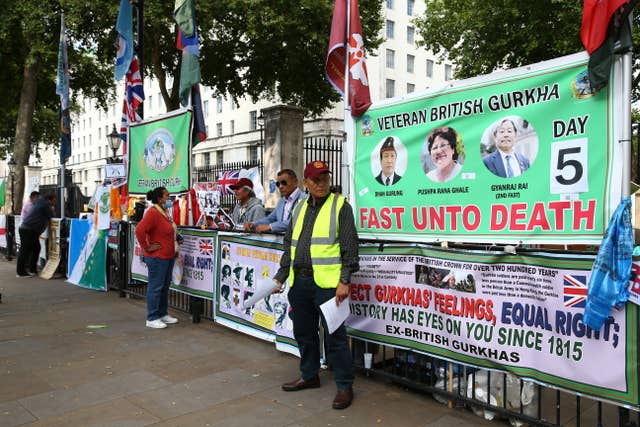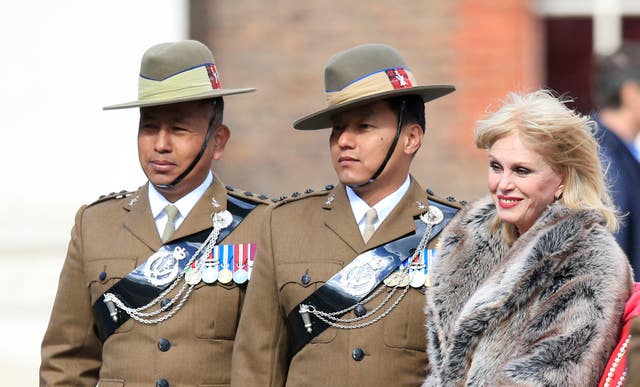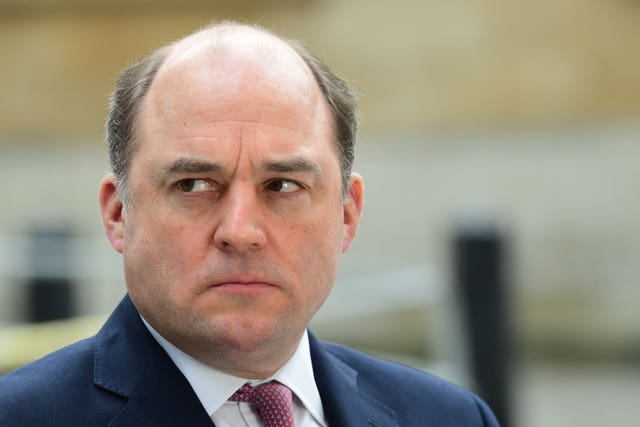There are no plans for Boris Johnson to meet Gurkha veterans who are on day 10 of a hunger strike over their pensions, the prime minister’s spokesperson has said.
Equal rights
The group outside Downing Street is calling for equal pensions for Gurkhas who retired before 1997 but are not eligible for a full UK armed forces pension. On 16 August, the Support Our Gurkhas protesters had reached their 10th day of not eating.

The prime minister’s spokesperson was asked whether any talks were planned after the protesters said they would end their hunger strike if a meeting was arranged. He said:
I believe the Defence Secretary said that he would be happy to meet with any Gurkha.
The spokesperson added there were “no plans” for Johnson to join a meeting.
On 13 August, defence secretary Ben Wallace said he was happy to meet protesters, but argued no government “of any colour” had ever made retrospective changes to pensions like the ones the demonstrators are calling for.
“Address the injustices”
On 14 August, actress and campaigner Joanna Lumley urged the government to meet the “brave and loyal” veterans “to address the injustices highlighted”.

The 75-year-old, who in 2009 led a campaign to allow Gurkhas settlement rights in Britain, was born in India and moved to England as a child. Her father was a major in the Gurkha Rifles. The Absolutely Fabulous actress said:
Only a deep sense of injustice could drive these brave and respectful souls to this point.
At the heart of this matter is how we value those who have offered, and sometimes given, the ultimate sacrifice to protect our way of life and to keep us safe.
Service record
Around 200,000 Gurkhas, recruited from Nepal, fought in both world wars, and they have also served in places such as Hong Kong, Malaysia, Borneo, Cyprus, the Falklands, Kosovo, Iraq, and Afghanistan.
Those who served from 1948 to 2007 were members of the Gurkha Pension Scheme until the Labour government of the time eliminated the differences between Gurkhas’ terms and conditions of service and those of their British counterparts.
Serving Gurkhas, and those with service on or after 1 July 1997, could then opt to transfer into the Armed Forces Pension Scheme. The change was brought in after an amendment to immigration rules in 2007, backdated to July 1997, meant more retired Gurkhas were likely to settle in the UK on discharge.

Waiting for the organ grinder, not the monkeys
Wallace told Sky News on 13 August:
I am very happy to meet any Gurkha. My father fought alongside the Gurkhas in Malaya in the 1950s, it is a pretty remarkable group of people.
The group of people currently protesting are groups affected by the change by the Labour government in 1997 to 2003. This was about people who are under a 1947 pension, it is a very small group of Gurkha pensioners, they had different advantages in their pension scheme in that old scheme.
That scheme said that you got it after 15 years when a British soldier got it after 22, but there is a difference and they feel that difference needs to be made up.
That is not the same as the Gurkhas of today or the Gurkhas after 2003 – they get exactly the same pensions as British serving personnel.
Leo Docherty, minister for defence people and veterans, has said the group has refused to meet him. He said:
I was disappointed the Satyagraha protest group declined to meet with me and hope they will engage positively in the Gurkha veterans dialogue the Defence Secretary hosts in early September.
We greatly value the contribution that Gurkhas make and consider the 1948 Gurkha Pension Scheme to be objectively fair and equitable, but I am always willing to speak with veterans and help resolve any such welfare concerns.















